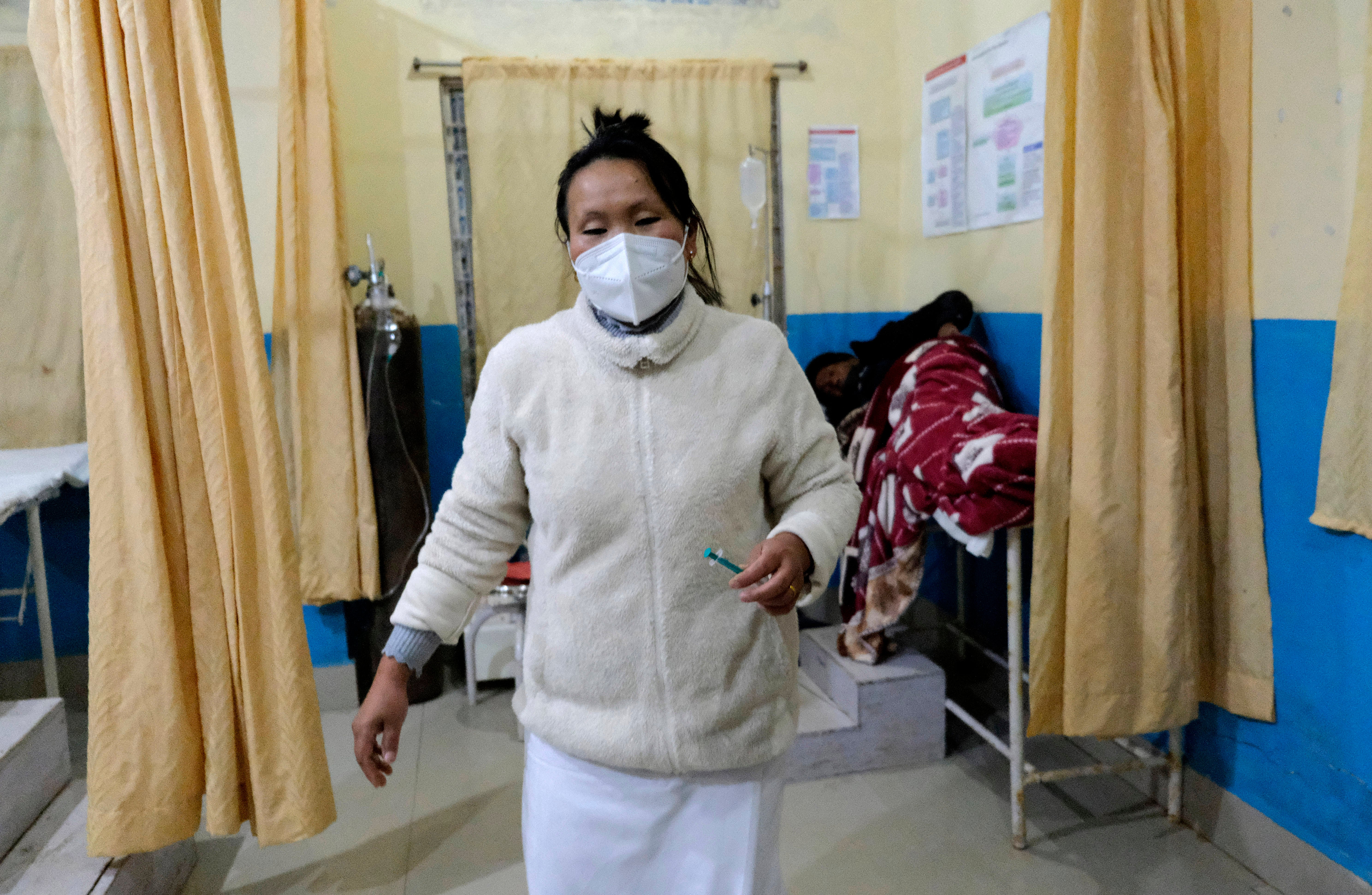AP PHOTOS: Vaccinated Indian nurse hopes worst is over

Your support helps us to tell the story
From reproductive rights to climate change to Big Tech, The Independent is on the ground when the story is developing. Whether it's investigating the financials of Elon Musk's pro-Trump PAC or producing our latest documentary, 'The A Word', which shines a light on the American women fighting for reproductive rights, we know how important it is to parse out the facts from the messaging.
At such a critical moment in US history, we need reporters on the ground. Your donation allows us to keep sending journalists to speak to both sides of the story.
The Independent is trusted by Americans across the entire political spectrum. And unlike many other quality news outlets, we choose not to lock Americans out of our reporting and analysis with paywalls. We believe quality journalism should be available to everyone, paid for by those who can afford it.
Your support makes all the difference.For as long as Shimray Wungreichon can remember, many of the people in her mountain town had little respect for the work she did.
“A nurse’s job is said to be noble, but in our part of the world it is interpreted differently,” said Wungreichon, a nurse in Ukhrul, a remote town in India’s northeastern state of Manipur. “We are looked down on as a service profession.”
The coronavirus pandemic changed that.
Wungreichon was among the first of many Indian health workers to be vaccinated on Saturday, opening a new chapter in the battle against the pandemic in the world's second hardest-hit country, which has been scarred profoundly by a virus that has killed more than 152,000 of its people.
“I am very positive about it," said Wungreichon, a nurse for 14 years who described getting vaccinated as a “normal routine” for her.
The 43-year-old's town escaped the worst of the pandemic, which has ravaged most of the country. But like so many health workers fighting the virus at the forefront, her life was also upended.
For the first three months, she couldn’t hug her three children, fearing she could potentially pass the virus to them. Her aged parents were to spend all of 2020 living with her, but it was too risky to live with a nurse so they moved back to their distant home village. And her anxiety spiked with every coronavirus test she conducted.
For a time, she even descended into depression and barely slept.
“This kind of collective fear has never been seen before. Nobody wants to die,” Wungreichon said while working in the emergency department at the district hospital in Ukhrul, the only government-run medical facility that caters to a population of 180,000. “People have realized that their lives are precious.”
Indian authorities hope to give shots to 300 million people, roughly the population of the U.S and several times more than its existing inoculation program that targets 26 million infants. The recipients include 30 million doctors, nurses and other front-line workers, to be followed by 270 million other people who are either over 50 years old or have illnesses that make them vulnerable to COVID-19.
Health officials haven’t specified what percentage of India's nearly 1.4 billion people will be targeted by the campaign. But experts say it will almost certainly be the largest such drive globally.
Vaccine hesitancy, however, is a major concern. But Wungreichon is prepared.
"As a health worker, this is a time when the world wants us to act,” she said.